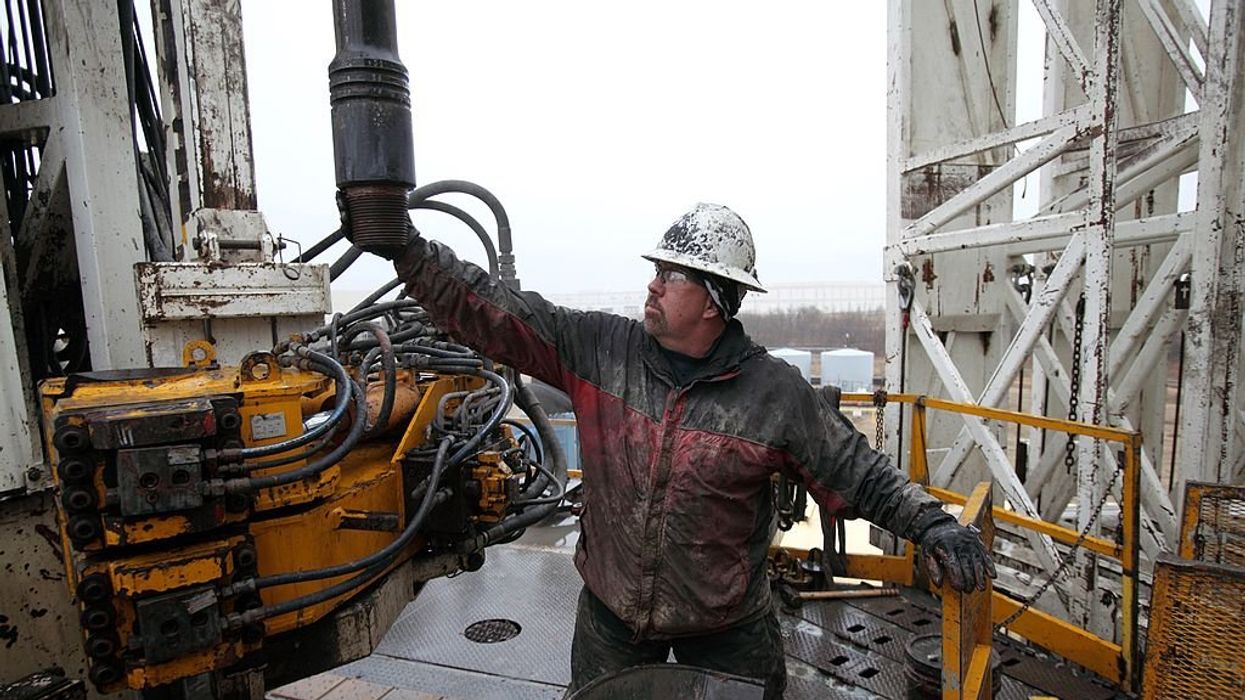
Robert Nickelsberg/Getty

After decades of California-style hippie messaging on “environmentalism,” “climate change,” “zero carbon” policy — the name keeps changing, the game remains the same — it might come as a bit of a shock to learn that full-spectrum clean energy is a reality far from West Coast shores.
But the truth is that Texas, long cast as the “fossil fuel”-burning villain in the hippie fantasy, is now far outstripping the Golden State at what was supposed to be its own Earth-loving game.
But environmentalist fears that become more outdated every day continue to keep California from moving forward with the new and better plants that would really change minds.
As the Financial Times reports, “after trailing for years, Texas has become America’s clean energy giant.” A quarter-century ago, California’s annual clean-source power generation sat at roughly twice that of its big-state rival. But like some Californians themselves, the output was erratic and unstable.
A wiggly line began to form as time marched on. A decade ago, progress slumped, and even some later spikes on the graph failed to beat the Lone Star State’s steady, measured increases in clean-source power. The lines crossed around 2015 and again around 2020 — and after that, the neck-and-neck race was over.
Today Texas is ahead in absolute terms by about the same sum as California was near the turn of the millennium.
What changed? The answer, we might say, is dirty tech.
Think of it as the tech that makes your hands dirty when you work on it — something the vast majority of West Coast techies experience rarely if at all. Rather than clattering across a keyboard or gliding across a touchpad, dirty tech involves stuff that makes a mess. Think big works, heavy machinery, excavations, installations, grease, and elbow grease — and yes, danger: Mishandle the tools, the raw materials, or your floor teams, and you’re finished.
Dirty tech, in other words, carries risks — real ones that demand discipline, focus, and responsibility in real life, not just inside the realms of an interface. Of course, there’s usually some connection between the two somewhere, and, ideally, a fairly intimate one. Technologists of all kinds are well served harnessing their softest and most sterile of work to serve something concrete and tangible — not just in the brick-and-mortar sense, but in the flesh-and-blood one.
Nevertheless, the distinction tells a powerful tale in the case of clean energy. Texas has pulled away from the emissions-obsessed Cali crowd because, today, “greening” our output doesn’t just mean harnessing the sun and the wind. It also means drawing power from water, biomass, and nuclear energy.
And on that expanded score, California hasn’t been the beacon of futurism it’s cracked up to be. In fact, its approach to solar hasn’t made headlines because the state failed to take into proper account the overwhelming importance of capturing and retaining solar energy.
Much as the state notoriously fails to hold onto vast quantities of the rainwater that occasionally pour onto its mountain ranges and into its lakes, when it comes to solar, all that California sun makes a limited impact in the absence of robust battery storage capabilities. (Speaking of water, Sacramento has also stagnated on desalination.)
Meanwhile, the statehouse tug of war over nuclear continues. One of the few operational plants was recently granted a stay of political execution, extending its life span until the end of this decade. But environmentalist fears that become more outdated every day continue to keep California from moving forward with the new and better plants that would really change minds.
Finally, few on the West Coast want to admit that natural gas can play a key supporting role — as it has in Texas — that bolsters and stabilizes alternative energy sources like wind or sun. Absent a steady backup, it’s harder to use all the energy produced by those gusts and rays and harder to persuade people that clean energy is reliable enough to trust.
Dirty tech, clean energy. It’s a simple formula with results as big as Texas. But until something changes in California’s notionally progressive mindset, its ideological “greens” remain far behind the curve.
James Poulos
BlazeTV Host